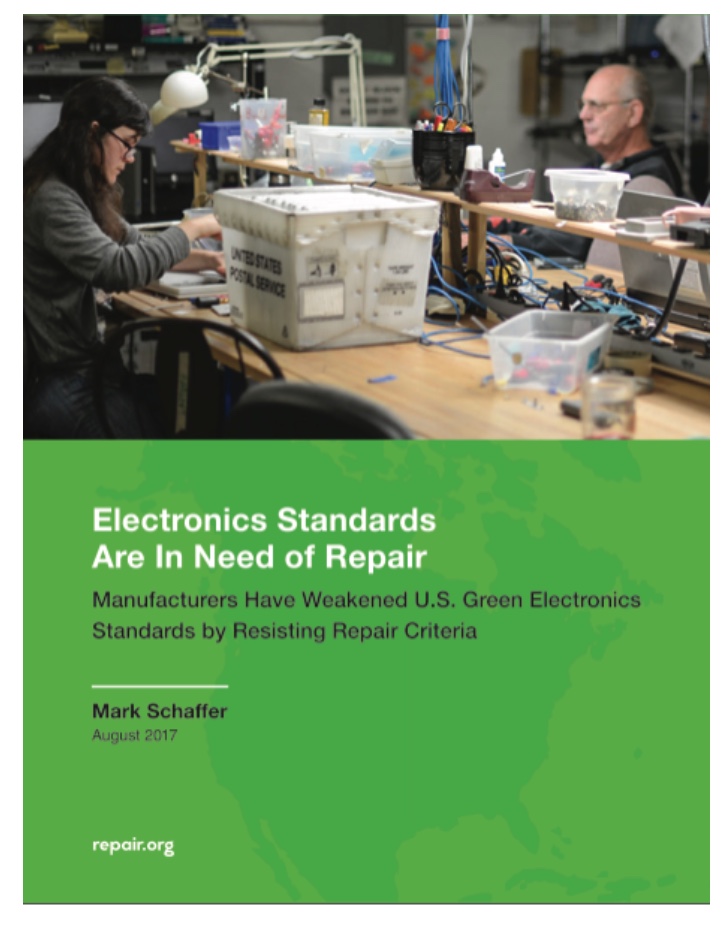Tech companies are standing in the way of stronger green electronics standards in the U.S., according to a new report by Repair.org. It finds that device manufacturers have systematically blocked attempts to promote longer-lasting devices.
Green electronics standards help people identify sustainable products and reward manufacturers that incorporate green designs. New products are scored against environmental performance criteria and are included on the EPEAT registry with a bronze, silver or gold designation. Eco-minded buyers—including the U.S. government—rely on the EPEAT registry to guide billions of dollars in purchasing.
But manufacturers have been watering down the standards, according to the analysis commissioned by Repair.org, a “right to repair” organization. The standards are supposed to be written by a balanced group of volunteer stakeholders, including representatives from major electronics producers. But manufacturers now occupy a large number of seats on the standards boards. They are abusing their position, diluting the standards to meet their existing products instead of designing leadership standards that encourage better products, claims Repair.org.

Despite overwhelming consensus that extending product lifespans is better for the environment, tech companies have largely blocked efforts to award points for products that are easier to repair, easier to upgrade, and easier to disassemble for recycling, the organization adds.
Instead of leading the way, green standards in the US “have become a complicated way for manufacturers to greenwash products that have a devastating environmental impact and pat themselves on the back for business as usual,” the report concludes. A full copy of the report is available here, but key findings include:
Manufacturers and other IT industry members—including chemical and plastics trade groups—hold so many positions on green electronics standards boards that they can resist leadership standards and instead approve criteria they can easily achieve.
The cycle of innovation in tech radically outpaces the development cycle for electronics standards. For example, the current 1680.1 standard for computers includes design criteria that were written over a decade ago. Revising standards takes way too long.
Manufacturers have consistently blocked meaningful criteria that would influence their product design, including any incentives to encourage design for repair or recycling.
The current development process favors members from well-funded organizations. Participating in the standards development requires an investment of time and money—which often deters participants with fewer resources, such as non-profit organizations, small businesses, and academic experts. Manufacturers drag out the development process, bleeding non-profits of scarce resources.
Regulatory bodies should balance the representation of standards boards to avoid a process that can be commandeered by manufacturers’ representatives.
